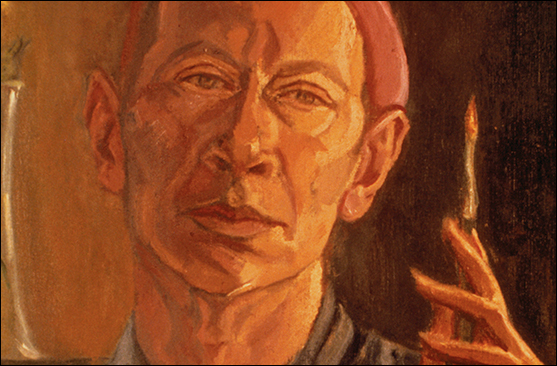
E.E. Cummings’s ‘firstness’
Cummings proclaimed the primacy of individual experience.
Edward Estlin Cummings (1894–1962) was born in Cambridge, Massachusetts, to Unitarian minister the Rev. Edward Cummings and Rebecca Clarke Cummings. It was a loving, literary home near Harvard University (his father’s alma mater and later his own). From infancy he was encouraged to revere words. Parents who save their children’s scribblings will be gratified to know that Cummings’s mother did, too, and his first poem, dictated at age three, remains in Harvard’s archive.
The Rev. Cummings, the Unitarian pastor to Boston’s South Congregational Church, might be surprised to hear his son lauded as a Unitarian poet, given their father-son struggles. Cummings’s devotion to his parents was deep, but the desire to break free of their influence is clear in a letter he wrote to his sister, Elizabeth: “NEVER take ANYONE’S word for ANYTHING. Find out for yourself!!!!” The poet who became famous for his lowercase “i,” would ferociously proclaim the primacy of individual experience, which places him in the tradition of American romantics such as Ralph Waldo Emerson and Henry David Thoreau. But Cummings’s innovations—he called them his “Firstness”—were unlike any writer’s before.
His poem “one” illustrates some of the techniques Cummings used to make language new; the word “gravestone” is stretched so that words within the word appear, while the letters mimic the twisting descent of a snowflake. His style has been called literary cubism, and he embraced the Modernist movement of the 1920s both as a poet and as a painter. Though steeped in literary traditions imbibed at home and in school, Cummings was hostile toward convention, a feeling he poured into the poem, “the Cambridge ladies who live in furnished souls.” Science raised his hackles, too: “While you and i have lips and voices which / are for kissing and to sing with / who cares if some oneeyed son of a bitch / invents an instrument to measure Spring with?”
Cummings spent his adult life in New York City, summering at his New Hampshire farm. His romantic life was tumultuous compared to his staid upbringing; he married three times (two of the marriages were legal and brief, the other was common-law and spanned thirty years) and had a strained relationship with his daughter, Nancy. His friends included John Dos Passos, Hart Crane, and Ezra Pound. In 1952, he gave the Charles Eliot Norton lectures at Harvard, which he called “nonlectures,” since he claimed he didn’t know anything—a sentiment rarely expressed from a Harvard podium.
Cummings was a stylistic acrobat who commanded both traditional form and free verse. His love poems are among the century’s best; the besotted need look no further than “you being in love” for swooning material. Literary critics often have found his artistic vision simplistic, and poems like “let’s live suddenly without thinking” do sound like teen manifestos, but for many readers, their very exuberance makes them thrilling. The large body of his poetry, nonfiction, and drama is a treasure trove, with all original typographical quirks restored. Though his life’s project was rebellion, the roots of his poetry are evident in his father’s sermons: “The Kingdom of Heaven is no spiritual roofgarden: it’s inside you.” That idea echoes in the closing couplet of “i thank You God for most this amazing” which is, for all its unconventionality, a sonnet: “(now the ears of my ears awake and / now the eyes of my eyes are opened).”
This article appeared in the Spring 2015 issue of UU World (pages 52-54). Ilustration (above): E.E. Cummings (1894-1962), undated self portrait. © Bettmann/Corbis. See sidebar for links to related resources.
Comments powered by Disqus






